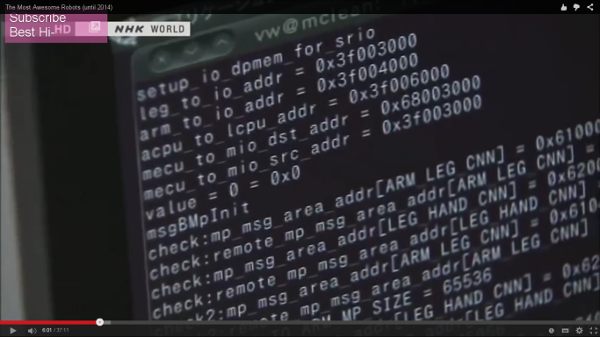 On Tuesday, Munich’s first mayor finally responded to an inquiry by the Green Party (PDF, German) about rumours regarding a possible reversion to a Windows-based desktop environment from its current Linux-based LiMux system (news passim). The response shows that there is no factual basis for the claims made by first mayor and second mayor. An evaluation of the IT infrastructure and processes is in progress.
On Tuesday, Munich’s first mayor finally responded to an inquiry by the Green Party (PDF, German) about rumours regarding a possible reversion to a Windows-based desktop environment from its current Linux-based LiMux system (news passim). The response shows that there is no factual basis for the claims made by first mayor and second mayor. An evaluation of the IT infrastructure and processes is in progress.
In recent months, statements by the newly appointed mayors Reiter and Schmid (Munich has 3 mayors. Ed.) have stirred up confusion about the future IT strategy of Munich. Contrary to third mayor Christine Strobl, the first and second mayors have hinted in recent months a possible end to the use of free software within the city. However, facts were hard to obtain. The answer to the inquiry has now shed some light on the matter.
No factual basis for criticism
The mayor now admits that the often-cited waiting time needed to obtain official work mobile phone is unrelated to the LiMux operating system, but was instead caused by the fact that he was the first to demand the implementation of Apple’s iOS in the city’s IT infrastructure.
As regards the missing unified mail and calendar application criticised by Schmid, it became clear that the relevant Kolab free software solution is currently being implemented. This only started in early 2014 and is expected to be in use early in 2015.
Broad support for free software in Munich
The city’s IT department, the city council and third mayor Christine Strobl all support the current IT strategy and thus distance themselves from the criticisms of the first and second mayors. Ms Strobl emphasises that “upon careful checking” she still considers the move to free software was the right thing to do.
There’s a sound economic basis for this view: the city was able to save €11 mn. just in reduced licensing costs. The hardware costs alone of switching to Windows 7 would have amounted to €3.15 mn., with a move to Windows 8 being even more expensive, according to the city’s IT department. Furthermore, a switch would incur additional costs and mean the loss of achievements in supporting open standards.
FSFE makes vendor independence and interoperability plea
The Free Software Foundation Europe (FSFE) is calling on Munich’s city council to include both vendor independence and interoperability as factors in the investigation, since they were major reasons for Munich switching to free software in the first place.
“Other European Countries such as Great Britain, France, Italy, and Sweden have made free software and Open Standards a central part of their IT strategies for the public sector in the past years. In Germany, the public sector is lagging behind. Germany’s federal and state governments finally need to take coherent action so that public institutions here, too, can enjoy the benefits of Free Software,” says FSFE President Karsten Gerloff.




 Passengers on board Train No. T809 from
Passengers on board Train No. T809 from  The licensing practices of proprietary software companies such as Microsoft have been questioned this week in the lower house (Tweede Kamer) of the Dutch parliament.
The licensing practices of proprietary software companies such as Microsoft have been questioned this week in the lower house (Tweede Kamer) of the Dutch parliament. Bristol University
Bristol University  Yesterday’s
Yesterday’s  Since the free and open source operating systems field tends to be dominated by GNU/Linux in its various forms and distributions, it’s easy to forget that others are available.
Since the free and open source operating systems field tends to be dominated by GNU/Linux in its various forms and distributions, it’s easy to forget that others are available. Yesterday we reported on the threat to the GNOME Foundation’s GNOME trademark from Gnome trademark applications made by Groupon (
Yesterday we reported on the threat to the GNOME Foundation’s GNOME trademark from Gnome trademark applications made by Groupon ( The Foundation is currently facing a threat to its GNOME trademark from global deal-of-the-day website merchants
The Foundation is currently facing a threat to its GNOME trademark from global deal-of-the-day website merchants 
 The current hard copy of Networking magazine (to which Bristol Wireless subscribes. Ed.) reports on its front page that on account of poor take-up of the broadband connection voucher scheme (
The current hard copy of Networking magazine (to which Bristol Wireless subscribes. Ed.) reports on its front page that on account of poor take-up of the broadband connection voucher scheme ( Hamburg’s Green want to wean the city off its Microsoft dependency and are pointing to Munich’s use of Linux, German IT news website
Hamburg’s Green want to wean the city off its Microsoft dependency and are pointing to Munich’s use of Linux, German IT news website  Ada Lovelace Day, that annual celebration of women in science, technology, engineering and medicine, may be gone for another year (
Ada Lovelace Day, that annual celebration of women in science, technology, engineering and medicine, may be gone for another year ( On Tuesday, Munich’s first mayor finally responded to an
On Tuesday, Munich’s first mayor finally responded to an  Tomorrow, 14th October, is
Tomorrow, 14th October, is